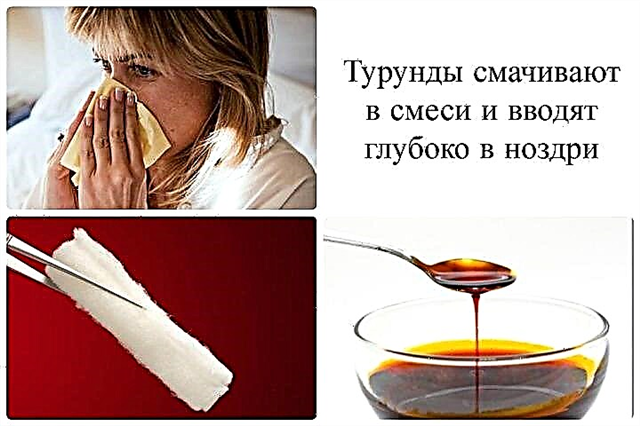Cough is one of the specific symptoms of any allergy. Doctors call it "a cough type of bronchial asthma." It should be noted that an allergic cough is directly related to the development of an inflammatory process that affects the mucous membrane of the throat, as well as the trachea and, finally, the bronchi.
The reasons that trigger a cough of an allergic nature in adults can be completely different. Basically, they depend on a very specific allergen. Often, coughing is caused by an allergy to household dust, plants during flowering, some animals, or the reaction of your own body to the ingestion of foreign protein from plasma, serum or vaccines.
Where does an allergy cough come from?
 If a person has never been familiar with allergic reactions before, it is very difficult to determine what exactly caused the sudden annoying cough. Let us list the main prerequisites for how it manifests itself in adults.
If a person has never been familiar with allergic reactions before, it is very difficult to determine what exactly caused the sudden annoying cough. Let us list the main prerequisites for how it manifests itself in adults.
- The most common allergens are tree and other plant blooms in the spring, as well as pet hair or dust. Contact with these pathogens must be stopped as soon as an allergy is suspected.
- People can cough because of the lack of perception of tobacco or any other smoke. The reaction is inconsistent and completely disappears after about 1 hour after the pathogen - a smoking person or a smoldering object - is eliminated.
- In some cases, a cough in adults occurs after taking certain medications, which, by the way, can supplement this symptom with dermatological reactions - dropsy and urticaria. Often such a nuisance arises in the process of self-medication or experiments with "grandmother's" recipes without taking into account the opinion of the doctor.
- Allergens are also hidden in cosmetics. For example, styling products are almost always irritating. Compact and loose powders, eye shadows, deodorants, perfumes - all these decorative cosmetics contain substances that are quite capable of making adult allergy sufferers cough.
- Allergic cough is often obtained by those who work in industries (factories, factories) or are forced to work in the fresh air. Microscopic particles of dust or harmful substances in the process of breathing are deposited on the larynx, trachea and, finally, on the bronchi.
The main signs of an allergic cough
 The onset of a classic allergy attack is traditionally a sudden cough or runny nose. Sometimes it happens that they complement each other. A person begins to cough when the pathogen settles on the larynx - or rather, on its mucous membrane. This is one of the most sensitive and delicate organs, which reacts violently even to a microdose of ordinary street dust or nicotine. Most people noted how sometimes you have to cough at home if you keep the windows open in the summer or do not monitor the level of humidity in the air, allowing it to be excessively dry. When adults have strong immunity, and the body can easily cope with this kind of pathogens, then a cough may not appear.
The onset of a classic allergy attack is traditionally a sudden cough or runny nose. Sometimes it happens that they complement each other. A person begins to cough when the pathogen settles on the larynx - or rather, on its mucous membrane. This is one of the most sensitive and delicate organs, which reacts violently even to a microdose of ordinary street dust or nicotine. Most people noted how sometimes you have to cough at home if you keep the windows open in the summer or do not monitor the level of humidity in the air, allowing it to be excessively dry. When adults have strong immunity, and the body can easily cope with this kind of pathogens, then a cough may not appear.
How to identify an allergic cough? There are several signs that can help you recognize it:
- as usual, there is no increase in body temperature with it;
- he rarely bothers during daylight hours;
- a person also suffers from a sore throat, a hoarse voice and an unbearable itch in the back of the throat.
Allergy sufferers' cough is aggravated, as a rule, in spring and at the very beginning of autumn. The development of the disease in adults often follows a certain scenario.
First, the allergen enters the body through the respiratory tract. Immunity immediately rushes to fight foreign particles and actively tries to remove them. Due to irritation of the respiratory tract, a person gets a runny nose and cough. Then to these symptoms can be added sore throat, spreading to the trachea and even bronchi.
How is it different from a cold
 How to distinguish an allergic cough from a cold cough? Indeed, very often there is simply no way with one hundred percent certainty to find out the cause of the onset of the disease or to detect an allergen, based only on a single symptom. So, you can recognize it as follows. Almost always, a cough of an allergic nature in adults appears after contact with pets or other animals (as well as with care products), a variety of household chemicals, perfumes, caring and decorative cosmetics. This list also includes dust from cabinets, carpets and pollen. In many cases, a cough is accompanied by the following symptoms:
How to distinguish an allergic cough from a cold cough? Indeed, very often there is simply no way with one hundred percent certainty to find out the cause of the onset of the disease or to detect an allergen, based only on a single symptom. So, you can recognize it as follows. Almost always, a cough of an allergic nature in adults appears after contact with pets or other animals (as well as with care products), a variety of household chemicals, perfumes, caring and decorative cosmetics. This list also includes dust from cabinets, carpets and pollen. In many cases, a cough is accompanied by the following symptoms:
- The sudden onset of symptoms immediately after contact with the suspected allergen in the absence of any other signs characteristic of acute respiratory infections or ARVI.
- It runs for a long time - over 21 days. At the same time, general weakness, chills and high fever, as well as other purely cold symptoms, are not observed.
- It is almost always accompanied by rhinitis. A person not only coughs, but also suffers from a runny nose, lacrimation, itching of mucous membranes and skin. His nose and throat begin to itch, provoking repeated sneezing.
- Sometimes a cough can occur immediately after contact with an allergen or even during interactions with it. For example, when visiting a perfume or cosmetic store, dry cleaning, or a carpet store. The strong smell of chemicals and tissues treated with them can not only cause coughing, but also provide a headache in the forehead.
- With an allergic cough, as a rule, phlegm does not come out. True, there are cases of its presence, but it always has a colorless appearance - transparent, like glass. Yellow-green sputum with pus clearly indicates that this is not an allergy, but a bacterial infection.
Danger
 In principle, a cough of an allergic origin does not pose a health hazard. However, if it is associated with swelling of the mucous membrane of the nasopharynx, then it can provoke an extremely life-threatening condition - laryngeal stenosis. This disease is characterized by a significant risk of death, especially in babies.
In principle, a cough of an allergic origin does not pose a health hazard. However, if it is associated with swelling of the mucous membrane of the nasopharynx, then it can provoke an extremely life-threatening condition - laryngeal stenosis. This disease is characterized by a significant risk of death, especially in babies.
The cough turns into a prolonged attack, when it seems that the bronchi are about to turn inside out and pop out. Aggravation occurs most often at night. If edema begins to develop (this is a pattern when allergies are not treated and its symptoms are ignored in every possible way), the glottis may narrow. A person cannot clear his throat and take a full breath - and here comes a very real risk to life.
The degree of danger of this disease is confirmed by the fact that ambulance doctors go immediately to a call to a person with such an attack and at least minimal suspicions of developing stenosis. Such calls are served out of turn.
Preventive actions
 If a person knows which allergen he is reacting to with a cough, he should be excluded or removed from the field of vision. When it is not possible to understand the type of allergen, then in order to get rid of the unpleasant cough, you need to:
If a person knows which allergen he is reacting to with a cough, he should be excluded or removed from the field of vision. When it is not possible to understand the type of allergen, then in order to get rid of the unpleasant cough, you need to:
- adhere to a hypoallergenic diet;
- refuse woolen products;
- refuse to live together in the same territory with animals;
- choose exclusively synthetic bedding - no natural fabrics;
- do wet cleaning in the house every day - dust and mop;
- get rid of any carpets on all surfaces;
- change the curtains to the thinnest ones - they do not accumulate dust in large quantities and are much easier to wash;
- it is extremely rare to use household chemicals and make up - and if you really have to, then purchase only those products that are marked "hypoallergenic";
- several times a day, rinse your throat and mouth thoroughly with water at room temperature - this should be done when you return home from the street. Additionally, you can rinse the nose (as an option - the nasopharynx). True, it is recommended to do this no more than 2 times a day.
Let's sum up
 It is obvious that allergic cough symptoms in adults are extremely simple. And yet, to find out that this is not a cold phenomenon at all, it is necessary as soon as possible. The fact is that such a cough should be treated on time. Otherwise, there is a significant risk of getting bronchitis first, complicated by the asthmatic component, and then, if you continue to ignore the signs, - full-fledged bronchial asthma.
It is obvious that allergic cough symptoms in adults are extremely simple. And yet, to find out that this is not a cold phenomenon at all, it is necessary as soon as possible. The fact is that such a cough should be treated on time. Otherwise, there is a significant risk of getting bronchitis first, complicated by the asthmatic component, and then, if you continue to ignore the signs, - full-fledged bronchial asthma.
A cough of an allergic nature is successfully treated today. The most important thing is to identify the allergen in a timely manner, eliminate it and start taking a course of special drugs. However, self-medication is inappropriate here. In any case, it is advisable to seek the advice of an experienced allergist.



